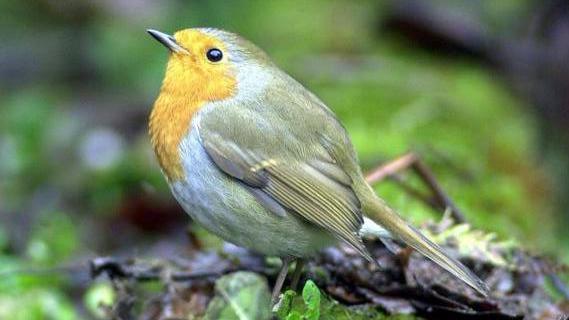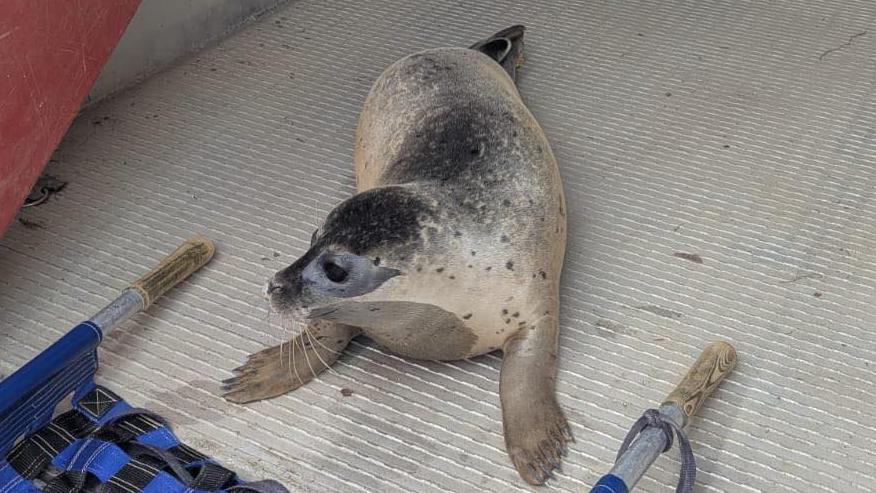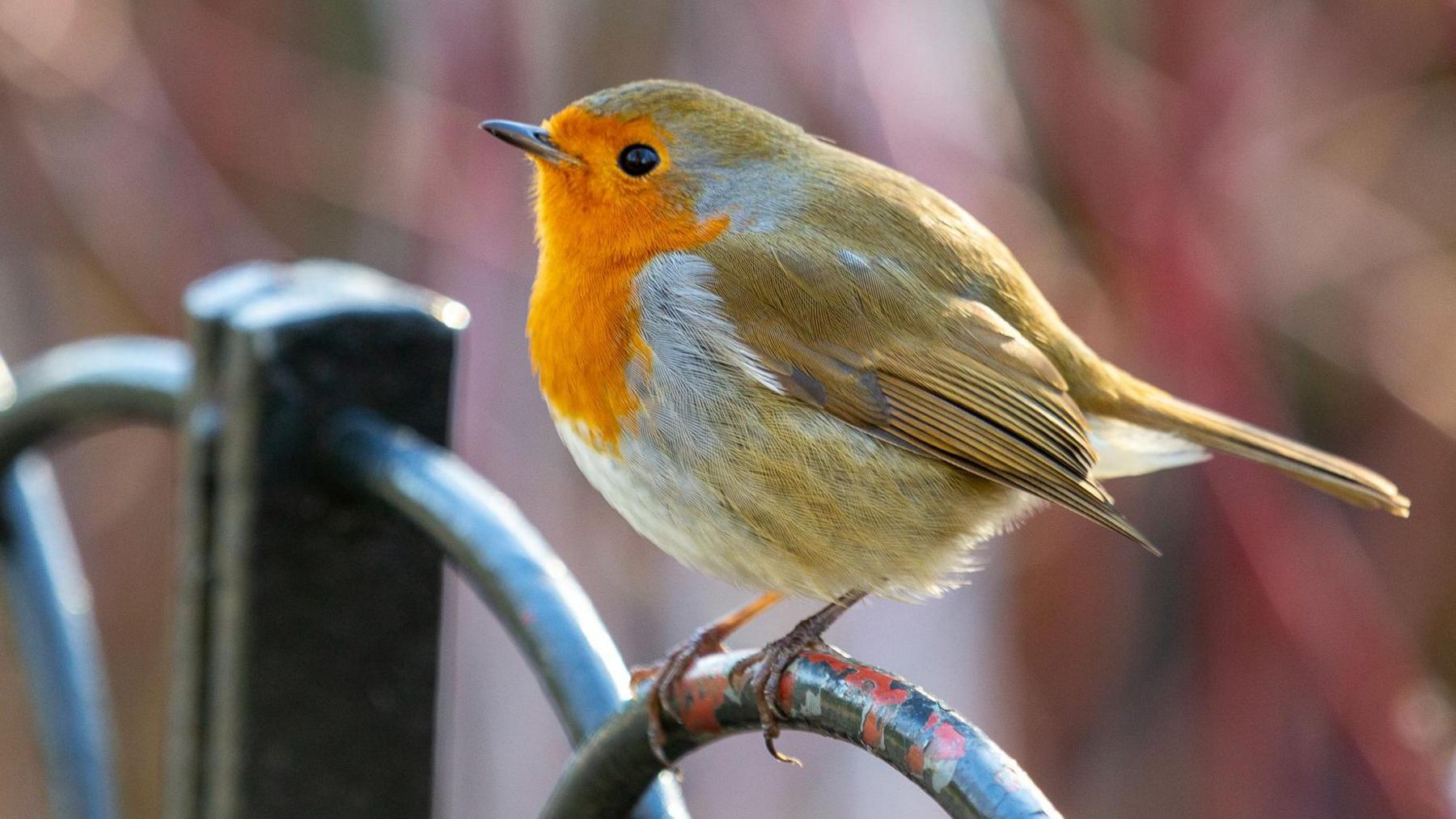Robin's glue-trap death 'highlights need for ban'

A robin died at the RSPCA's East Winch Wildlife Centre after becoming stuck on a glue trap
- Published
The "heart-breaking" death of a robin caught on a glue trap has highlighted the need to ban them from public sale after a recent law change, an animal charity has said.
The bird was brought into the RSPCA's East Winch Wildlife Centre, near King's Lynn, Norfolk, still alive and stuck to the device after it flew into a house.
Last year, the use of such traps without a pest control licence was banned in England, external, but they are still on sale.
The Department for Environment, Food and Rural Affairs (Defra) said the British Independent Retailers Association had "published advice" to stop them being sold for illegal use.
Defra said glue traps could only be used by licensed pest controllers in "certain situations to preserve public health and safety where there is no suitable alternative".
Under the Wildlife and Countryside Act 1981, it had already been an offence to set a glue trap where wild birds such as robins may be captured, such as outside spaces, the department added.
'Grey area'
Staff at East Winch were unable to save the robin and it died from injuries suffered on the trap.
Despite being banned from general use, the glue traps - commonly used to catch mice and rats, can still be widely found on sale.
Recently, the centre has dealt with a pigeon as well as small mammals, including hedgehogs, becoming stuck on glue trays.
Speaking to BBC Radio Norfolk, centre manager Evangelos Achilleos said the death of the robin had been "heart-breaking".
He added even if people managed to release birds from the trap's non-drying adhesive, the damage to feathers meant they could not then fly off and survive in the wild.
Leading up to the change in the law, the RSPCA had said the traps caused unnecessary suffering when used to control pests, external.
"Part of the challenge is that they're so freely available," said Mr Achilleos.
"It seems like a grey area - it is illegal for the public to be using them.
"You do need to have a licence, but from a welfare perspective these shouldn't be used at all."
He also urged retailers to take heed of the robin's suffering, saying the traps were "not humane".
"Please remove these from your shelves to educate people to instigate change - the only way we can achieve anything is if we all work collaboratively together," he added.
Anyone convicted of setting up an illegal glue trap could be jailed for up to six months, external and/or handed an unlimited fine, under the new act.
Get in touch
Do you have a story suggestion for Norfolk?
Follow Norfolk news on BBC Sounds, Facebook, external, Instagram, external and X, external.
Related topics
More like this story
- Published8 October

- Published20 September 2024
